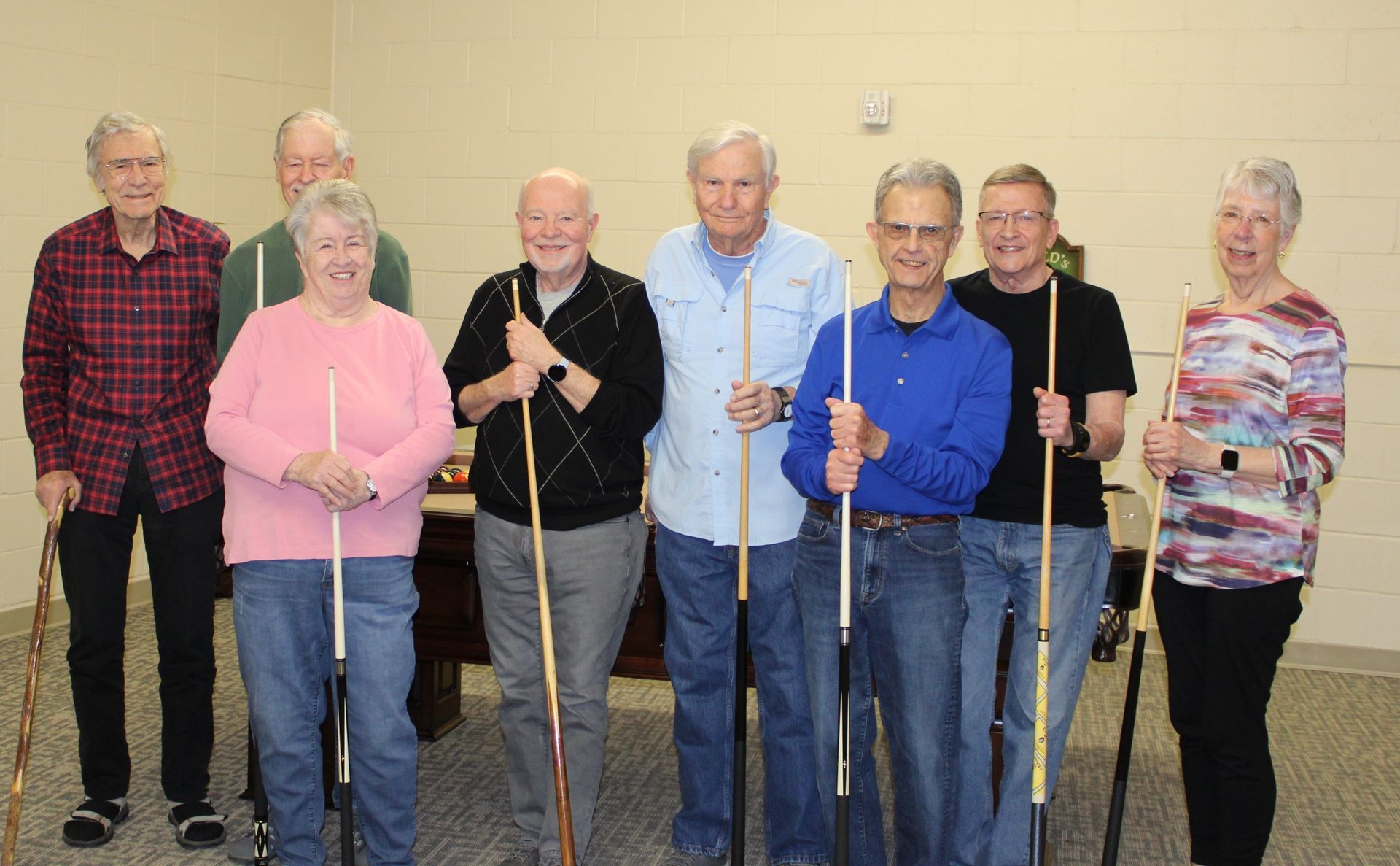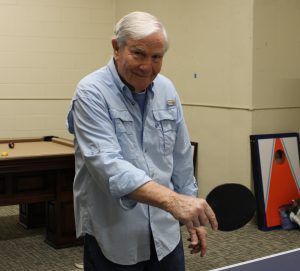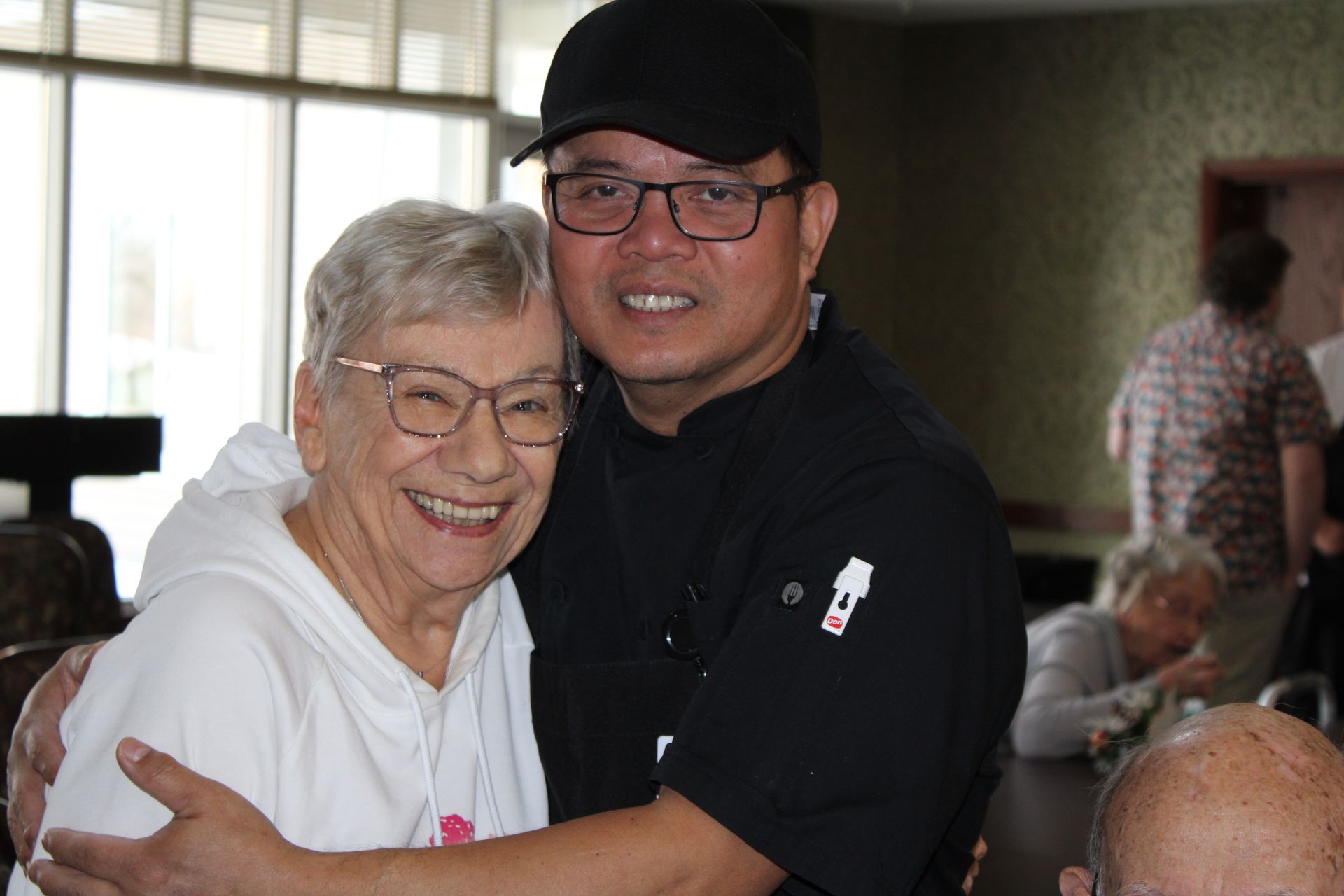
Ingenious Woodbury Residents Create a Space of their Own
When Bud Maraist moved into Saint Therese of Woodbury three years ago from North Carolina, he quickly saw a need for a “man cave” of sorts, for residents living in The Redwoods senior apartments community.
New to Minnesota, Bud and his wife, Diane, moved here to be close to their daughter and Bud wanted a way for men to gather like the women at the Redwoods did, to do crafts, Mahjong and the like.
“A group of us put our heads together and decided we needed to create a game room, where we can play pool, ping pong and just hang out,” said Maraist. “Everyone wanted it and anyone can use it.”

A group of seven resourceful residents – Bud, Dave Roseen, Mary Ann Hoffman, Alicia York, John Wilkinson, Joe Helkamp, and Gary Blanchard – met with Saint Therese management, received the go-ahead and found a storage room off the parking garage that suited their purposes perfectly.
Soon Doobay Bhola, Plant Operations Manager at Woodbury, got on board and with the help of outside vendors and his internal building maintenance staff, transformed the room by cleaning it out, painting, adding carpet and installing a refrigerator.
The residents, meantime, went in search of the all-important games. Enter Alicia York who scoured the internet and found the pool table and ping pong table. She began negotiations with a seller on Facebook Marketplace for the pool table, but when he learned who they were with, he decided to donate it. They’ve also added corn hole and a dart board.
“This project started as a vision from the residents creating more social engagement within the building,” said Josh Anderson, who was the Interim Executive Director of Woodbury at the time. “It was a collaboration where many people contributed to the final outcome. It’s been a joy to see this project come together but more importantly seeing the use of the space bringing the community together!”
The game room – not a man cave – officially opened in February and it’s getting great use.
“It’s fun to have a place for family to come to, to meet and relax. It brings back memories for me of playing these games with my dad,” said Dave Roseen. “Oh, and the grandkids like it too.”
About
At Saint Therese, our heartfelt purpose since 1968 has been a people first approach to living well by providing senior care and services where every life we touch feels welcomed, respected, and heard. We achieve this by doing ordinary things with extraordinary love every single day. Contact us to learn more.










